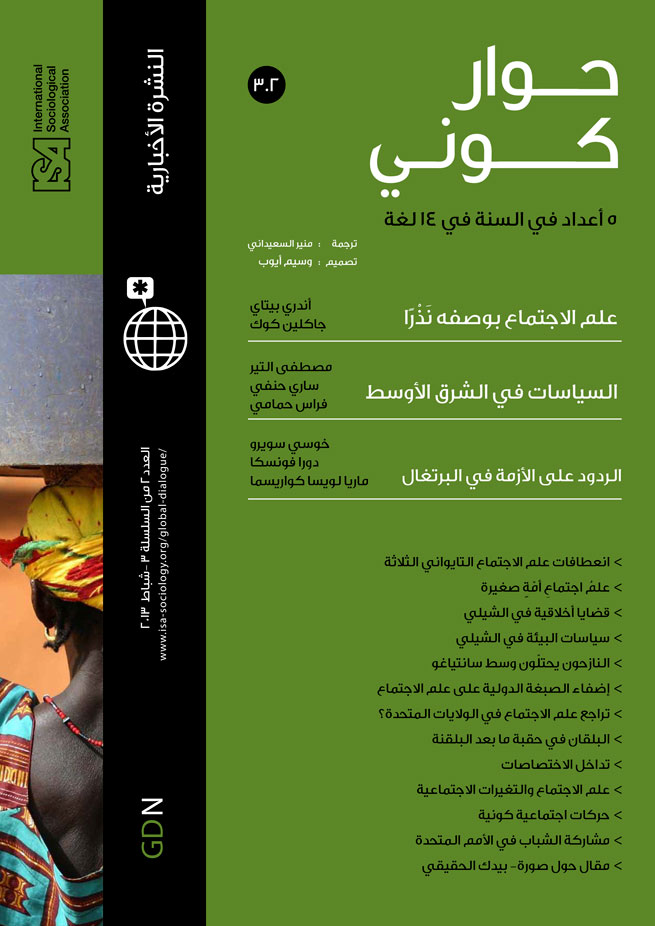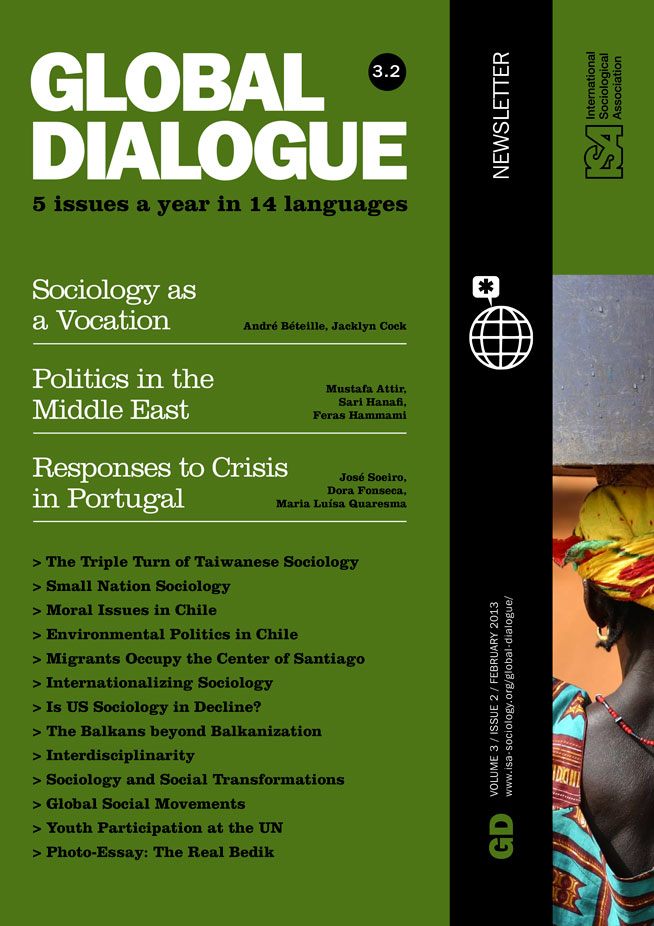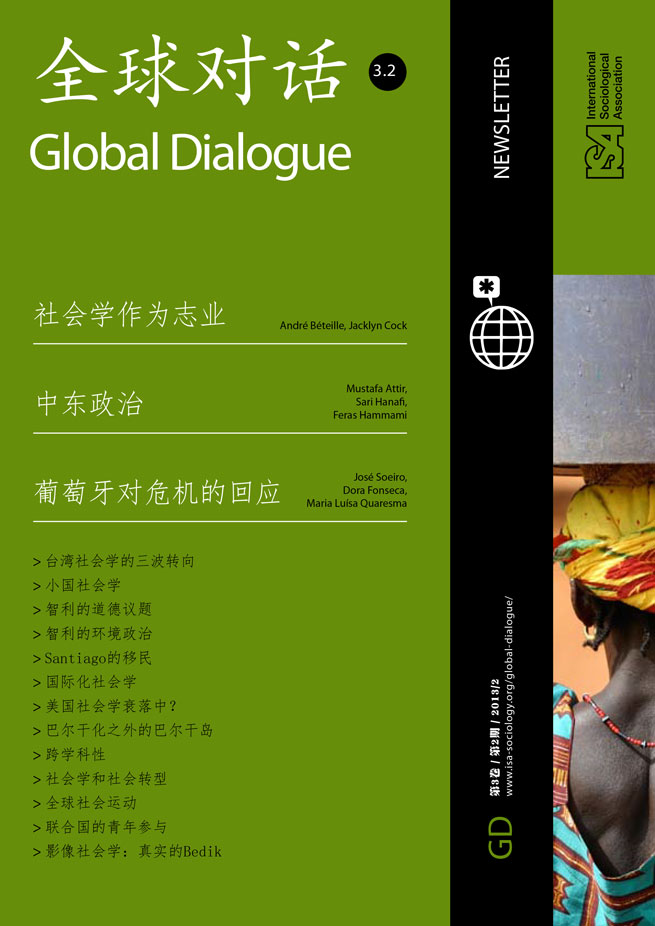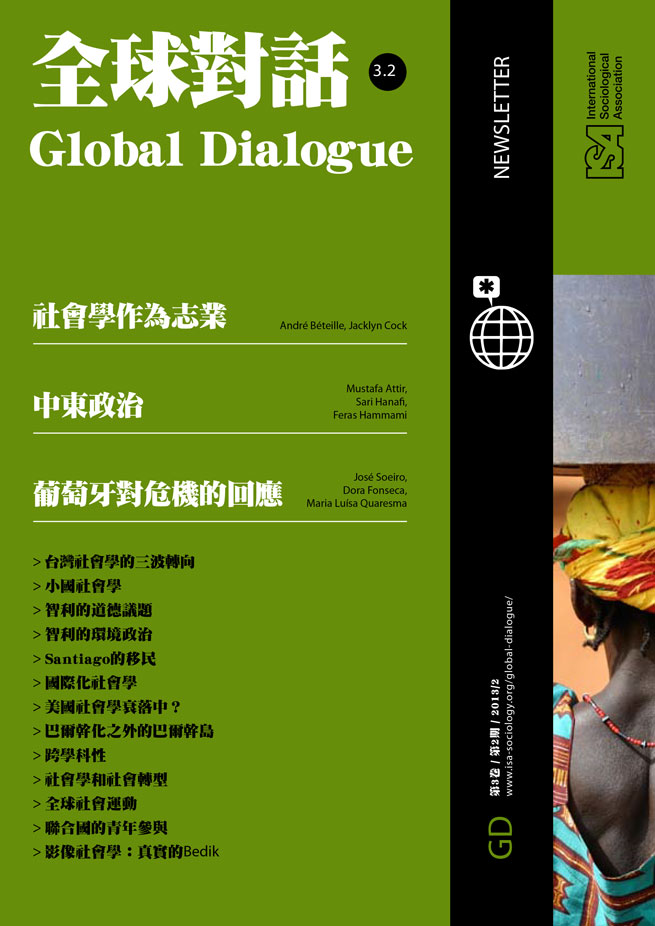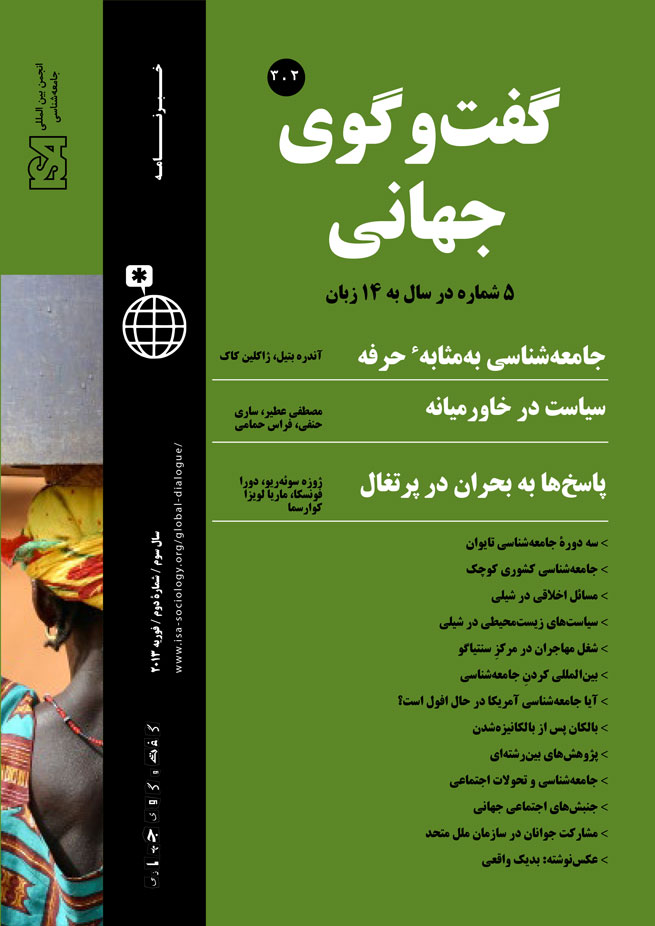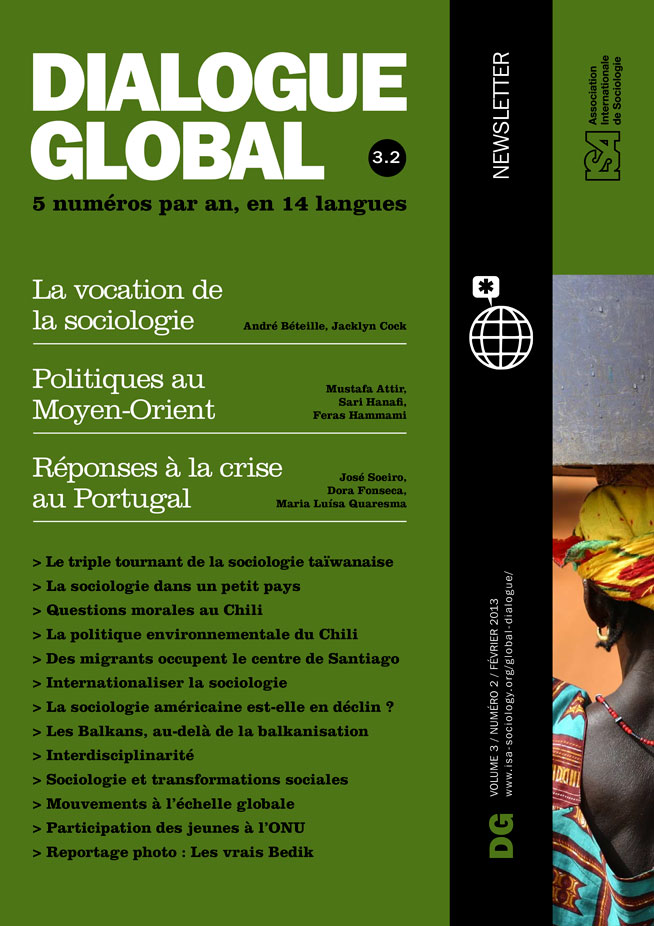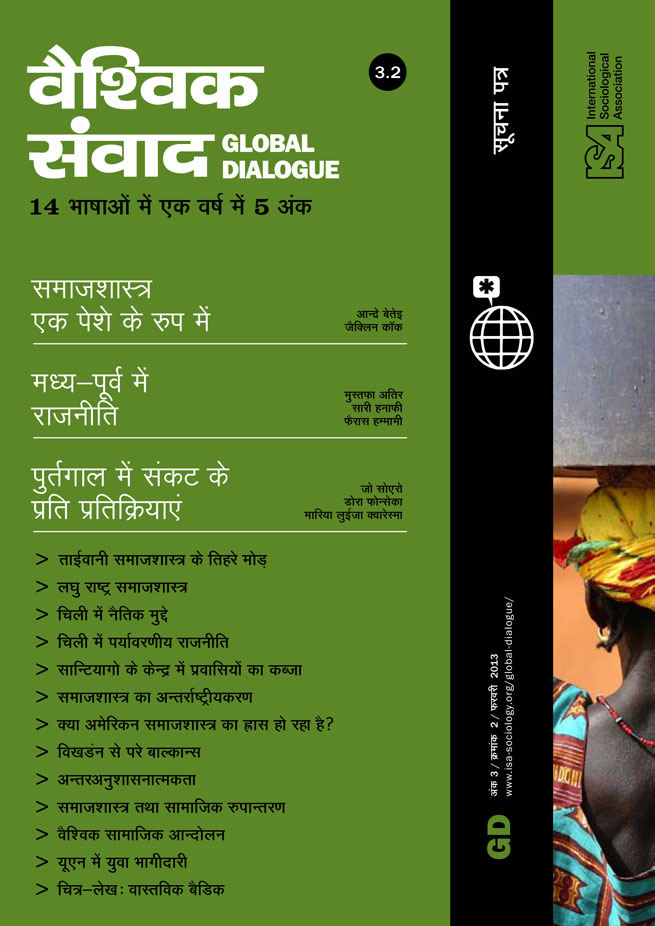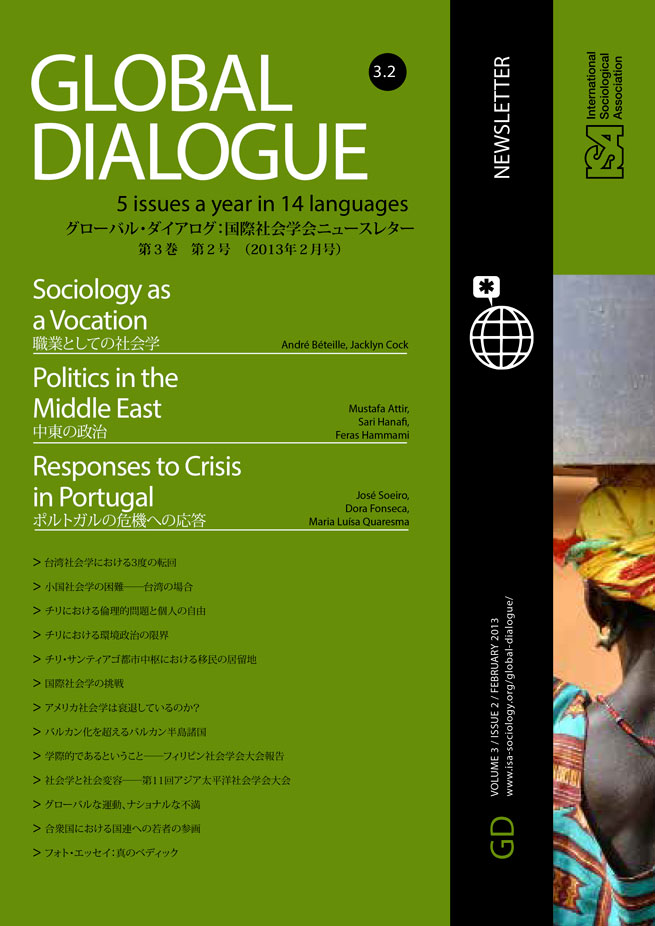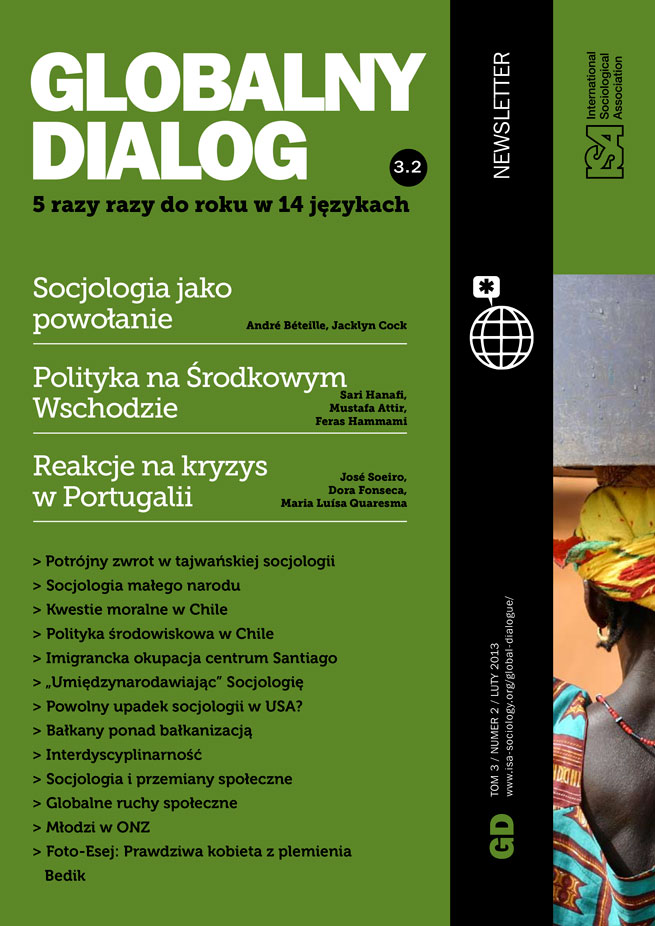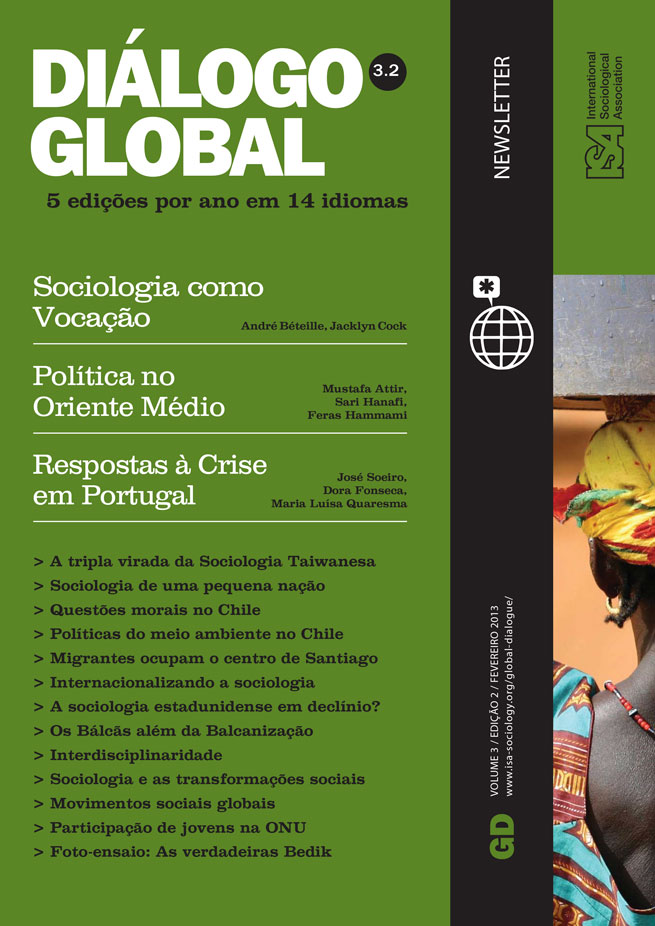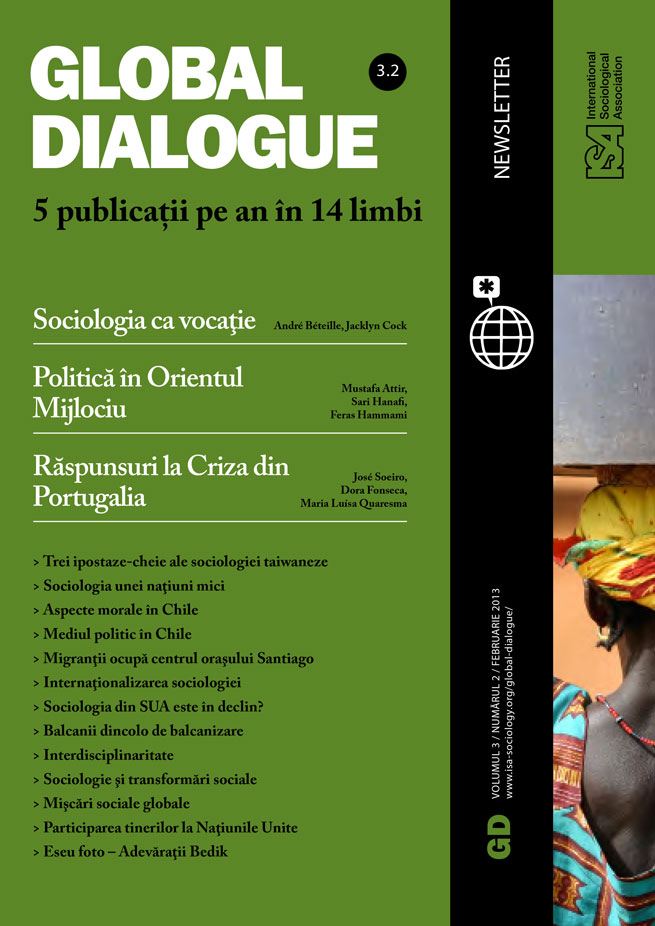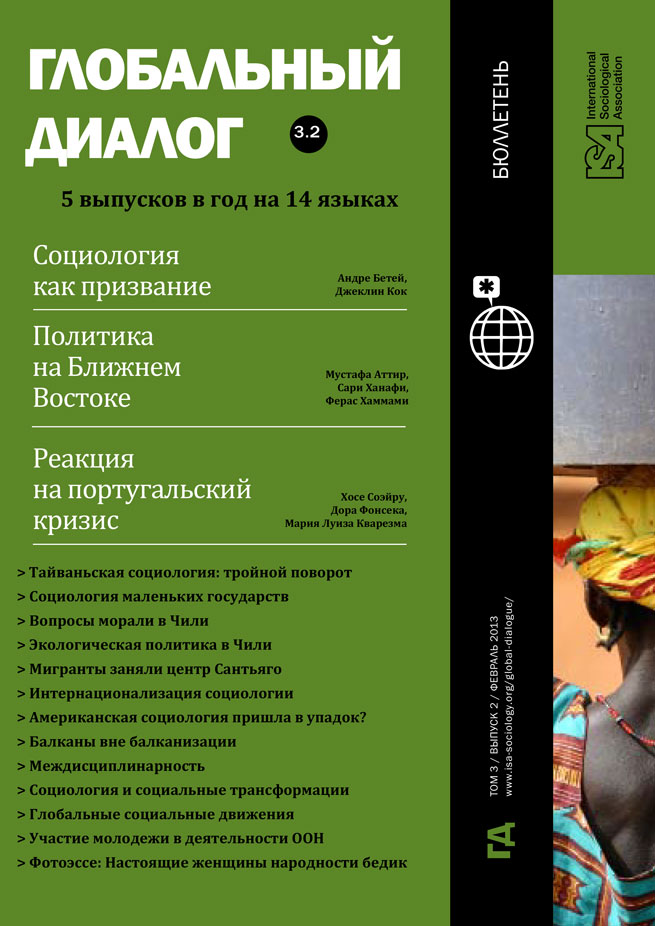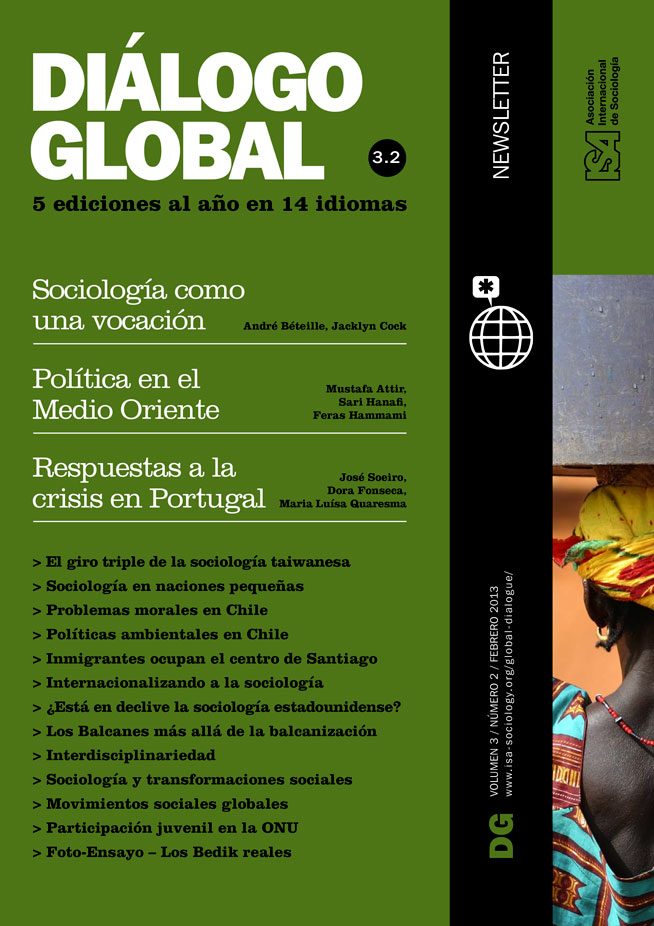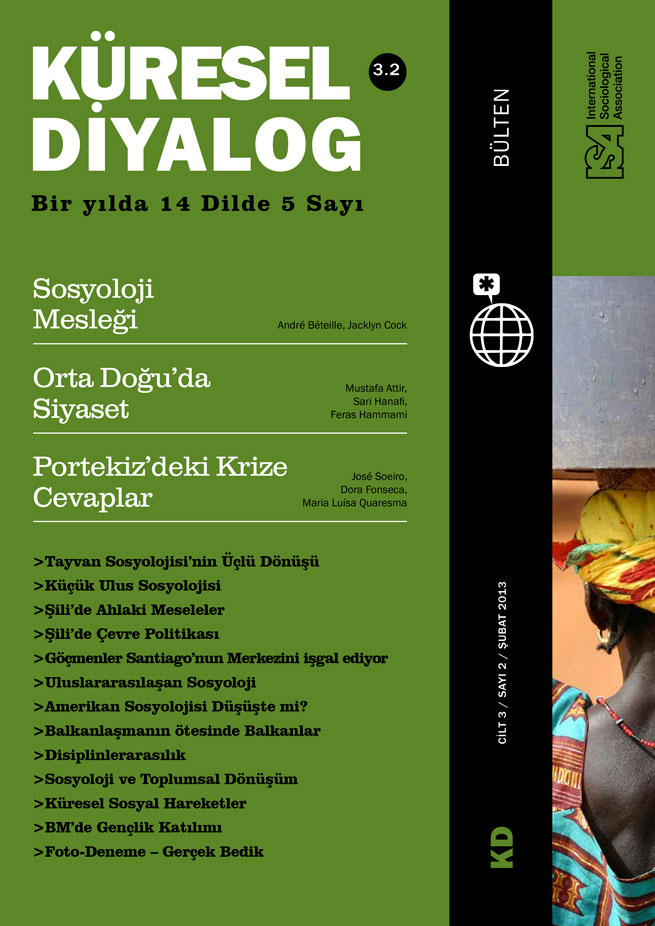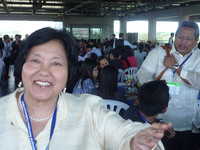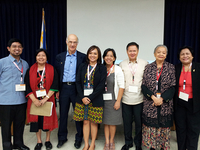Global Movements, National Grievances
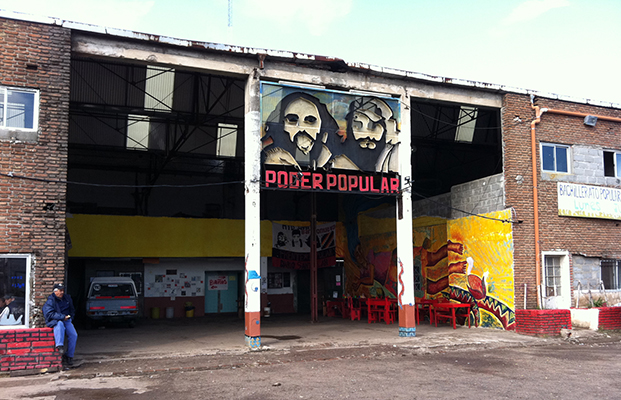
February 15, 2013
Studies of collective action and social movements have received considerable impetus in recent decades, expanding our knowledge of their emergence, consolidation, impact, and decline. Facing their chameleon-like character sociology has developed new tools for their investigation.
Beginning in December 2010, we have witnessed a continuous series of protests, peacefully occupying public spaces and targeting regimes either of dubious democratic character or clearly authoritarian. Such countries as Tunisia, Egypt, Morocco, Yemen, Bahrain, Israel, Spain and the US, have had the most intense experience of this wave of “occupying social movements.” In some cases, the force of peaceful mobilization has been sufficient to produce substantial social change whereas in other cases the recurrent and escalating use of violence has prevailed. Everywhere the outcomes are uncertain and are being subjected to scrutiny by numerous experts. The movements have spread like a virus from country to country via social networks that amplify their impact through the dissemination of images worldwide on the Internet. Manuel Castells has rightly spoken of “networked social movements.”
To examine this wave of social mobilization, RC48 (Research Committee on Social Movements, Collective Action and Social Change), in collaboration with RC47 (Social Classes and Social Movements), organized the International Conference “From the Social to the Political: New Forms of Mobilization and Democratization” in Bilbao in February 2012. Essays on the mobilizations in North Africa, Arab countries and Southern Europe have been published by RC48 and the University of the Basque Country. They can be downloaded from https://identidadcolectiva.es/ISA_RC48/.
During the last year, the most important activity of RC48, from all points of view, has been the organization of almost twenty sessions of presentations, discussions, and roundtables at the ISA’s Second Forum of Sociology, August 1-4 (2012) in Buenos Aires. These sessions created the opportunity to: learn about new trends and theoretical approaches in the field of mobilization and social change; explore the role of creativity, emotions, and body in acts of protest; analyze the visual representation of injustice and exclusion; understand the relationship between science, technology, and social mobilization; and, above all, hear the voices of the Latin American streets.
Here I want to stress the theoretical contributions of the papers that dealt with social movements in Argentina, Chile, Brazil, Colombia, Mexico, Bolivia, and Ecuador. These included movements of the piqueteros and of students, people with disabilities, family members of victims of political violence, young blacks, landless workers, homeless people as well as struggles in working-class neighborhoods, struggles for the recovery of abandoned factories, struggles by indigenous communities, and around human trafficking. The Buenos Aires meeting allowed us to listen and discuss, on a face-to-face basis, little-known movements beyond Latin America but that had important influences on democratization and the fight against social injustice. In addition, thanks to colleagues at the University of Buenos Aires and the Gino Germani Institute we were able to make direct contact with recovered factories and grassroots community organizations. Many of the papers presented in sessions organized by RC48 in the Buenos Aires Forum can be found in the book edited by B. Tejerina and I. Perugorría Global Movements, National Grievances: Mobilizing for “Real Democracy”and Social Justice.
Benjamín Tejerina, University of the Basque Country, Spain, President of RC48 (Social Movements, Collective Action and Social Change), and member of the ISA Executive Committee, 2010-2014

